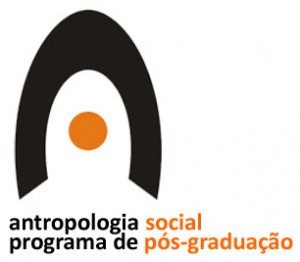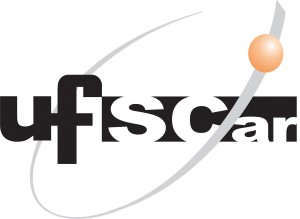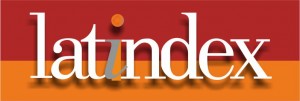É possível respeitar a terra?
Dilemas ambientais entre fazendeiros Mapuche no Chile
DOI:
https://doi.org/10.52426/rau.v10i2.251Palavras-chave:
Conhecimento ambiental, agricultura, assimilação, Mapuche, ChileResumo
Esse artigo analisa formas ideais, possíveis e reais de engajamento ambiental entre o povo Mapuche. Material etnográfico centrado nas práticas agrícolas entre os residentes rurais de Mapuche, e suas conexões com a indústria do agronegócio mostram como ideias indígenas de “respeito” e princípios ontológicos de consciência não-humana são constantemente negociados na mediação entre a vontade de proteger a terra e a necessidade de explorála para garantir a continuidade das conexões de terra sobre as quais o pertencimento Mapuche se baseia. Dilemas ambientais oferecem uma perspectiva crítica ao fenômeno da assimilação, o qual se baseia em preocupações sobre a adoção de práticas socioecológicas associadas aos winka (pessoas não-indígenas) e alteridade com gerações passadas, cujos valores ambientais são admirados enquanto considerados inadequados em face dos desafios da agricultura de pequena escala.
Referências
ABRAMSON, Allen; HOLBRAAD, Martin. 2014. “Introduction: the cosmological frame in anthropology.” In Framing Cosmologies: The Anthropology of Worlds, Allen Abramson & Martin Holbraad (orgs.), 1-29. Manchester: Manchester University Press.
ARGYROU, Vassos. 2005. The Logic of Environmentalism: Anthropology, Ecology and Postcoloniality. Oxford: Berghahn Books.
BACIGALUPO, Ana Mariella. 1996. “Ngünchen, El concepto de Dios Mapuche.” Historia, 29:43-68.
______. 2007. Shamans of the Foye Tree. Gender, Power and Healing among Chilean Mapuche. Austin: University of Texas Press.
BENGOA, José. 2000. Historia del pueblo mapuche: siglo XIX y XX. Santiago: Lom Ediciones.
BONELLI, Cristóbal. 2015. “Eating one’s worlds: On foods, metabolic writing and ethnographic humor”. Subjectivity, 8(3):181-200.
CATRILEO, Maria. 1998. Diccionario lingüístico-etnográfico de la lengua mapuche. Santiago: Editorial Andrés Bello.
CHIHUAILAF, Elicura. 2008. Sueños de luna azul. Santiago: Cuatro Vientos.
CITARELLA, Luca. 1995. Medicinas y Culturas en la Araucanía. Santiago: Editorial Sudamericana.
COÑA, Pascual. [1930] 2010. Testimonio de un cacique mapuche. [Originally published under the name of Wilhelm de Moesbach]. Santiago: Pehuen.
COURSE, Magnus. 2010. “Of words and fog: Linguistic relativity and Amerindian ontology”. Anthropological Theory, 10 (3):247-263.
______. 2011. Becoming Mapuche: Person and Ritual in Indigenous Chile. Urbana: University of Illinois Press.
______. 2012. “The Birth of the Word: Language, Force, and Mapuche Ritual Authority.” HAU:
Journal of Ethnographic Theory, 2(1):1-26.
CUMINAO, Clorinda 2007. “Ensayo en torno a los escritos mapuche”. In Intelectuales Indígenas Piensan América Latina, Claudia Zapata (org.), 151-168. Quito: Ediciones Abya Yala.
DESCOLA, Philippe. 1996. “Constructing Nature: Symbolic Ecology and social practice”. In Nature and society: anthropological perspectives, Philippe Descola & Gisli Pálsson (orgs.), 82-102. London: Routledge.
______. 2013. Beyond nature and culture. Chicago: The University of Chicago Press.
DILLEHAY, Tom D. 2007. Monuments, empires, and resistance: The Araucanian polity and ritual narratives. Cambridge: Cambridge University Press.
DI GIMINIANI, Piergiorgio. 2012. Tierras ancestrales, disputas contemporáneas: Pertenencia y demandas territoriales en la sociedad mapuche rural. Santiago: Ediciones UC.
______. 2016a. “Being from the Land: Memory, Self and the Power of Place in Indigenous Southern Chile”. Ethnos, 81(5):888-912.
______. 2016b. “How to Manage a Forest: Environmental Governance in Neoliberal Chile”. Anthropological quarterly, 89(3):721-750
DOVE, Michael R. 2006. “Indigenous people and environmental politics.” Annual Review of Anthropology, 35(1):191-208.
ESCOBAR, Arturo. 2010. “Latin America at a crossroads: alternative modernizations, post-liberalism, or post-development?” Cultural studies, 24(1):1-65.
FAUSTO, Carlos. 1999. “Of enemies and pets: warfare and shamanism in Amazonia.” American Ethnologist, 26(4):933-956.
FARON, Louis. 1964. Hawks of the sun: Mapuche morality and its ritual attributes. Pittsburgh: University of Pittsburgh Press.
FOERSTER, Rolf. 1993. Introducción a la religiosidad mapuche. Santiago de Chile: Editorial Universitaria.
GONZÁLEZ, Marcelo. 2015. “The truth of experience and its communication: Reflections on Mapuche epistemology.” Anthropological Theory, 15(2):141-157.
______. 2016 Los mapuche y sus otros: persona, alteridad y sociedad en el sur de Chile. Santiago: Editorial Universitaria.
GOW, Peter. 1991. Of mixed blood: kinship and history in Peruvian Amazonia. Oxford: Oxford University Press.
GREBE, María Ester. 1986. “Algunos paralelismos en los sistemas de creencia mapuche: los espíritus del agua y la montaña”. Cultura, Hombre y Sociedad, 3:143-154.
GREBE, María Ester; PACHECO, Sergio; SEGURA, José. 1972. “Cosmovisión mapuche.” Cuadernos de la realidad nacional, 14: 46-73.
HANDELMAN, Don. 2008. “Afterword: Returning to Cosmology. Thoughts on the Positioning of Belief.” Social analysis, 52(1):181-195.
HARAWAY, Donna. 2008. When species meet. Minneapolis: University of Minnesota Press.
HARRIS, Olivia. 2000. To make the earth bear fruit: essays on fertility, work and gender in highland Bolivia. London: Institute of Latin American Studies.
INGOLD, Tim. 2000. The perception of the environment: essays on livelihood, dwelling and skill. London: Routledge.
______. 2001. From the transmission of representations to the education of attention. In The debated mind: Evolutionary psychology versus ethnography, Harvey Whitehouse (org.), 113-153. Oxford: Berg.
______. 2014. “Religious perception and the education of attention.” Religion, Brain & Behavior, 4(2):156-158.
KLUBOCK, Thomas M. 2014. La Frontera: Forests and Ecological Conflict in Chile’s Frontier Territory. Durham: Duke University Press.
KOHN, Eduardo. 2013. How Forests Think: Toward an Anthropology Beyond the Human. Berkeley: University of California Press.
LADIO, Ana; LOZADA, Mariana. 2001. “Nontimber Forest Product Use in Two Human Populations From Northwest Patagonia: A Quantitative Approach.” Human Ecology, 29(4):367-380.
LITTLE, Christian; LARA, Antonio; McPHEE, James; URRUTIA, Sebastián. 2009. “Revealing the impact of forest exotic plantations on water yield in large scale watersheds in South-Central Chile.” Journal of hydrology, 374(1):162-170.
LUHRMANN, Tanya M. 2010. What counts as data. In Emotions in the Field: the Psychology and Anthropology of Fieldwork Experience, James Davies & Dimitrina Spencer (orgs.), 212-238. Stanford: Stanford University Press.
MARIMÁN, José. 2012. Autodeterminación: Ideas políticas mapuche en el albor del siglo XXI. Santiago: Lom Ediciones.
MAUREIRA, Ramón; QUIDEL, Javier. 2003. Principios básicos presente en el derecho propio del pueblo nación mapuche. In Informe final de la Comisión Autónoma Mapuche, 1121-1174. Santiago: Ministerio de Planificación.
MILLALÉN, José. 2006. “La sociedad mapuche prehispanica: kimün, arqueología y etnohistoria. In ¡…Escucha, winka . . .! Cuatro ensayos de Historia Nacional Mapuche y un epílogo sobre el futuro, Pablo Marimán, Sergio Caniuqueo, José Millalén & Rodrigo Levil (orgs.), 17-52. Santiago: Lom Ediciones.
PAIRICÁN, Fernando. 2014. Malón. La rebelión del movimiento mapuche. 1990-2013. Santiago: Editorial Pehuén.
POVINELLI, Elizabeth A. 2016. Geontologies: A requiem to late liberalism. Durham: Duke University Press.
PRIETO, Manuel; CARL, Bauer. 2012. “Hydroelectric power generation in Chile: An institutional critique of the neutrality of market mechanisms.” Water International, 37(2):131-146.
RAYMOND, Hames. 2007. “The ecologically noble savage debate.” Annual Review of Anthropology, 36:177-190.
REIMÁN, Alfonso. 2001. “Expansión Forestal: la visión desde el movimiento Mapuche.” In Territorio Mapuche y Expansión Forestal, Sara McFall (orgs.), 33-40. Temuco: Ediciones Escaparate.
RICHARDS, Paul. 1993. “Cultivation: Knowledge or Performance?” In An Anthropological Critique of Development, Mark Hobart (org.), 61-78. Londres: Routledge.
RICHARDS, Patricia. 2013. Race and the Chilean Miracle: Neoliberalism, Democracy and Indigenous Rights. Pittsburgh: University of Pittsburgh Press.
SILLITOE, Paul (ed.). 2007. Local science vs. global science: Approaches to indigenous knowledge in international development. Oxford: Berghahn Books.
SPIVAK, Gayatri 1990. The post-colonial critic: Interviews, strategies, dialogues. Londres: Routledge.
STRANG, Veronica. 2004. The meaning of water. Oxford: Berg.
STRATHERN, Marilyn.1980. “‘No nature, no culture: The Hagen case.” In Nature, culture, and gender, Carol MacCormack & Marilyn Strathern (orgs.),174-222. Cambridge: Cambridge University Press.
STUCHLIK, Milan. 1976. Life on a half share: mechanisms of social recruitment the Mapuche of southern Chile. Nova York: St. Martins Press.
VIVEIROS DE CASTRO, Eduardo Batalha. 1998. “Cosmological Deixis and Amerindian Perspectivism.” Journal of the Royal Anthropological Institute, 4(3):469-488.
______. 2004. “Perspectival anthropology and the method of controlled equivocation.” Tipiti, 1:3-22.
______. 2011. “Zeno and the art of anthropology of lies, beliefs, paradoxes, and other truths.” Common Knowledge, 17(1):128-145.
Downloads
Publicado
Como Citar
Edição
Seção
Licença
Copyright (c) 2018 Revista de Antropologia da UFSCar

Este trabalho está licenciado sob uma licença Creative Commons Attribution-ShareAlike 4.0 International License.





